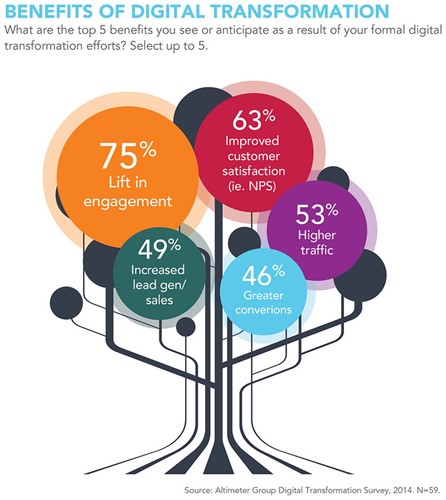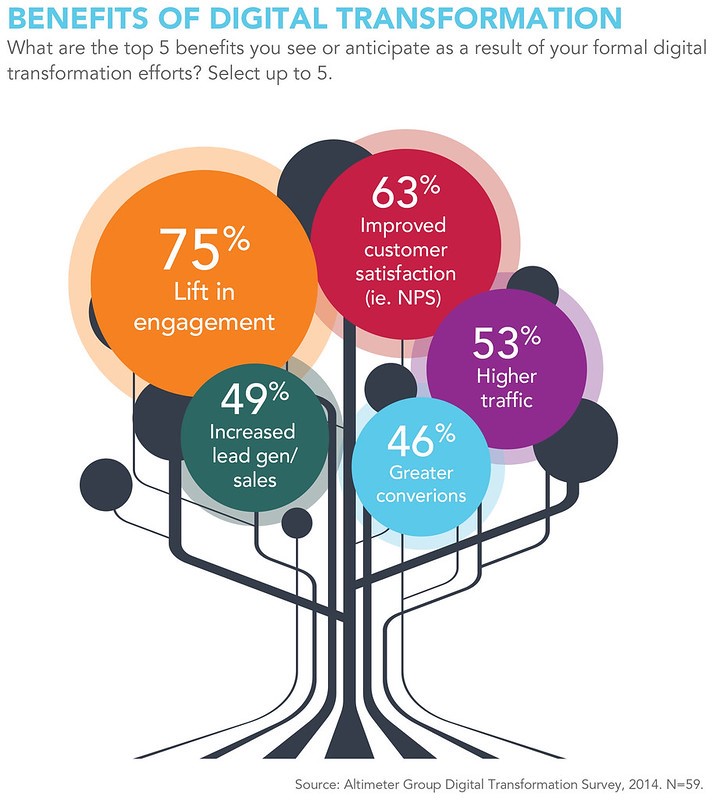For more information on your charming neighborhood CSW Solutions, visit us at our home or subscribe to our newsletter! We also do that social networking thing at: Twitter, Facebook, Linkedin, and Instagram! Check out our #funfactfridays
What is Digital Transformation?
Everyone thinks about the future of their business. Whether you're new to the game or you're a long-term player, you know that you must always look ahead to stay ahead. But there is no question that the way people interact with the world has changed in the last year. The Covid-19 pandemic has shown us is that how important it is to have a solid technology backbone for the business that will allow your team to collaborate and communicate effectively no matter where they are physically located. This is one of the key advantages of digital transformation.
On that note, it is still not clear to many business leaders what digital transformation actually means. The term, "digital transformation" was overused in the years leading up to the pandemic that by the time it was truly relevant to businesses, its meaning had become lost. So we will try again.
Let us start, by defining, what is digital transformation?
Digital transformation refers to the integration of digital technology into all areas of a business, fundamentally changing operations and how value is delivered to customers. It entails a cultural shift that necessitates consistent challenges to the status quo by experimenting and becoming comfortable with change or risk in order to discover new methods of adaptability and growth.
Why?


Digital transformation does not begin with technology alone; it begins with a problem description, a clear opportunity or clear goal in mind. For example, the reason for your company's digital transformation could be to improve customer experience, reduce costs, improve efficiency, or increase profitability. If it's an aspirational direction instead, it may be about the leverage of enabling new technologies to be the best company for business and growth potential.
A business may take on digital transformation for several other reasons, however for most, it is for survival because to be stagnant means giving up. An organization's ability to adapt quickly to supply chain disruptions and intuit rapidly changing customer expectations, are critical to the reputation and success of the business itself.
In order for your team and business to support your digital transformation, it needs to be real. You need provide them with context. You can do so by connecting the transformation with a more meaningful impact – such as attracting and retaining more business, improving customer satisfaction, or increasing productivity.
The Customer
Customer relationships are central to a digital transformation strategy. If the habits of a traditional customer base are shifting, the key objective is to move with them. This could be as simple as implementing new payment processes or providing access to services through a mobile application. However, the most successful digital transformation strategies adopt traditional development principles but turn them upside-down in practice.
By the time a change in customer behavior is identified, it is either too late or your team must scramble to make amends in favor of the change. However, if there is already a data collection process in place that calculates and forecasts behavior, you have a distinct advantage. Digitizing your processes in a way that allows streamlined data to be collected across the board makes this more straightforward. As an example, McDonald's have maintained their global brand status by anticipating behavioral trends in both the use of social media apps and new payment technology. They developed their strategy by effectively working backward from that forecast.
What are the key trends in digital transformation in 2021?
Here are eight key digital transformation trends that business and IT leaders must be aware of in 2021:
- Digital operating models have become mandatory
- Handling and managing Big Data
- Better use of AI and machine learning.
- New digital partnerships between Consulting agencies
- Increase adoption of the public cloud.
- New digital transformation success metrics.
- More attention to long-term value of digital initiatives.
So where do you begin? If you need help implementing new integrated data collection, content management systems, or Microsoft Azure migration as a starting point for your digital transformation strategy, our solution architects are here to help.
We can be your new beginning.
